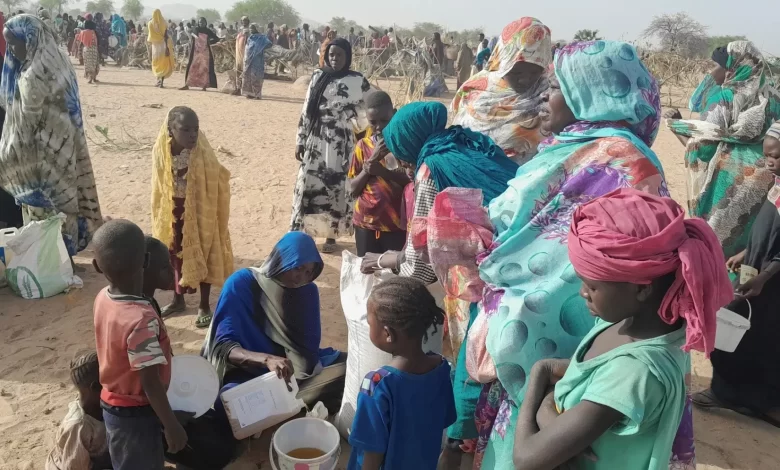Harsh Living Conditions brought by the War

Report – Rehab Abdullah
Nine months after the outbreak of war between the Sudanese army and the Rapid Support Militia (RSF) in Khartoum, obtaining food and drinking supplies and services for all citizens who are still steadfast in Khartoum or displaced to other states, as a result of high prices and the cessation of sources of income, has become difficult, or even almost impossible.
Deteriorating living conditions
Sudan Events’ follow-ups showed that the living conditions of the displaced persons living now in schools, clubs and boarding houses have deteriorated in an unprecedented way.
The Sudanese economy declined significantly, as the Sudanese pound lost 40% of its value against foreign currencies as a direct result of and the repercussions of the war.
The World Bank estimated the rate of contraction in Sudan’s gross domestic product (GDP) at (12%).
The economic expert, Dr. Mohammed Al-Nayer, warns against the worsening economic situation of citizens, and in statement to Sudan Events said that the unemployment rate produced by the war conditions will have increased significantly, in that most public and private sector employees have become temporarily unemployed without salaries, indicating that many of them have tried seeking a temporary job that would make them earn extra pounds to enable them secure buy their daily subsistence.
Turning the rich into the poor
It is evident that the war turned the middle-income people into poor people, and many of the rich people became poor after losing all their possessions, pointing out that all people’s attention has become focused on obtaining food, drink, and medical treatment.
Perhaps the citizen was not only harmed by losing his source of livelihood or salary due to the war, but also faced exploitation from merchants after the significant increase in prices, at a time when some find an excuse for the merchants, considering that the war also affected the movement of trade, says citizen Muzamil Abdul Basset to “Sudan Events,” The continued displacement of Sudanese and the shortage of supplies directly affected the states’ stock of commodities, causing many merchants to double their prices. The difficulty in movements, transport of commodities, and fees on the roads further complicated the problem.
Famine warnings
Observers warned against the consequences of the continuation of the war between the army and the RSF militia, anticipating that the country would enter into a real famine, because the production areas stopped working, and even what is imported from abroad does not reach the citizens of the states affected by the war in the center and west, due to the lack of security and the fees imposed to them by the militants.



